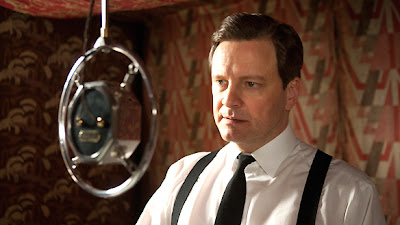Hugo
Directed by Martin Scorsese
Screenplay by John Logan
Based on the novel “The Invention of Hugo Cabret” by Brian Selznick
Cast
Hugo Cabret – Asa Butterfield
Georges Méliès – Ben Kingsley
Isabelle – Chloë Grace Moretz
Station Inspector – Sacha Baron Cohen
Lisette – Emily Mortimer
Mama Jeanne – Helen McCrory
Rene Tabard – Michael Stuhlbarg
As if the news that Martin Scorsese made a family movie wasn’t curiosity-tickling enough, he’s done it in 3-D—and his venture into the new medium also pays tribute to the cinema and film preservation in general, and particularly to those primordial trailblazers in film, such as the Lumière brothers and its specific honoree, Georges Méliès, played compellingly by Ben Kingsley. If you have limited knowledge of film history, there’s no need to feel left out because, before it embarks on a bit of a lecture tour through the history of early cinema and the expository flashbacks narrated by Méliès in its second half, Scorsese takes you on a Dickensian trip back in time to 1930s Paris presented in glittering diorama-like aerial shots. Set in a train station, the story begins with our orphaned hero and son of a clockmaker Hugo Cabret’s encounter with the now-forgotten Méliès and his narrow escape from a crippled station inspector called Gustav, who’s cold-hearted and on the 24/7 hunt for orphans. It’s then followed by Hugo’s escapades with his new friend and Méliès’s granddaughter Isabelle, and their little investigation into his father’s message delivered in a mysterious drawing by the automaton, a complex mechanism and the deceased clockmaker’s only bequest.
Sounds like a perfect blend of adventure parable for kids and film history lesson for lay viewers, doesn’t it? Well, to some extent, yes, but it doesn’t come without flaws. The excitement generated in the opening sequence fizzles out as Hugo and Isabelle’s search for truth clunks along towards the middle section of the movie, and there are awkward pauses and a clueless-looking exchange of stares between the two, which should have been filled with a natural flow of dialog or more action. Having seen her mind-blowing work in Kick-Ass despite the moral squeamishness of her role, Moretz’s wooden acting felt like an ambush. But thankfully, both child actors improve noticeably as their adventure draws to a close. Then, as another widely discussed weakness of Hugo, there’s an inherently pedagogical quality in its “history lesson” sequence that the movie rather embraces than try to downplay, using a montage of silent-era achievements, from Arrival of a Train at La Ciotat to Workers Leaving the Lumière Factory to The Great Train Robbery. Moreover, the dénouement revealing Méliès’s past inevitably smacks of emotional manipulation, a trap into which most nostalgia-driven stories fall so easily.
But enough with the fault-finding. The thing is, despite all my cavils, the most valuable and laudable asset of this movie is the ease with which it makes the audience forget its weaknesses. After all, this is a feel-good fantasy, all about fixing broken hearts and finding home. And it’s not just a boy’s rags-to-riches journey, but provides all the characters, including Gustav, an equal chance to recover from their old wounds and rediscover the warmth that’s been tucked away somewhere in them for so long. There’s no simplistic treatment of characters in the name of poetic justice; you might equate Hugo with Oliver, but Gustav isn’t Fagin. While it ostensibly adheres to the typical Victorian narrative of an individual’s triumph, it offers an organic connection between an orphan’s heart-warming against-all-odds tale and a heartfelt ode to the cinema by a director whose contributions span several decades. From the opening tracking shot with the camera gliding through the impeccably recreated train platform to a scene packed with a swarm of passengers Hugo and Isabelle jostle their way through, recalling the Lumière brothers' masterpieces, and to the climax summing up Méliès's oeuvre, the whole movie is an overt homage to the pioneers of the early cinema. It’s not just for cinephiles, though. An old-meets-new enterprise and mesmerizing visual feast, Hugo also appeals to general audiences seeking pure entertainment and a refreshing movie-going experience, whoever just craves escapism from the real world drenched in cynicism.














